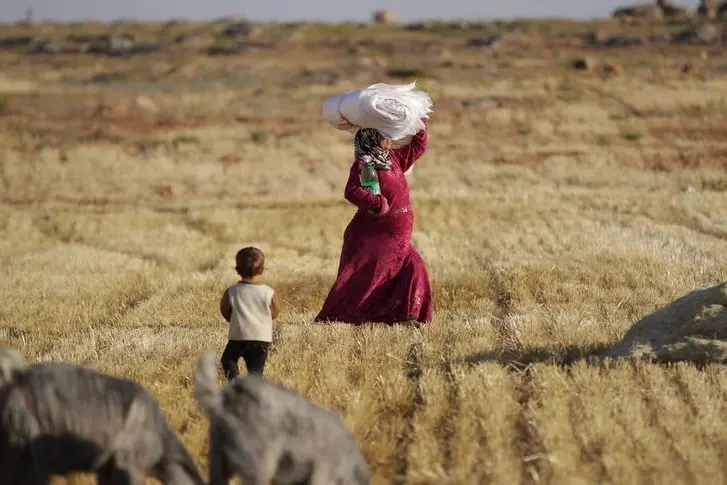PHOTO
By Maha El Dahan
DUBAI, July 18 (Reuters) - Syria's 2017 wheat crop has slightly improved to 1.8 million tonnes, 12 percent higher than last year's record low, but less than half of pre-war production averages, two United Nations agencies said on Tuesday.
The Syrian agriculture ministry's wheat production forecast puts the 2017 crop higher at 2 million tonnes. Officials, traders and farmers told Reuters earlier in July that figure was grossly inflated.
Syria used to produce 4 million tonnes in a good year and was able to export 1.5 million tonnes. The fall in output has put President Bashar al-Assad's government under increasing pressure to import the grain.
The latest assessment, conducted by the Food and Agriculture Organization of the United Nations (FAO) and the World Food Programme (WFP) said the crop had improved on better rainfall and improved access to agricultural land.
"Main constraints continue to be the high cost or unavailability of inputs, such as seeds and fertilizer, and the destruction of infrastructure," the statement said.
Syria's wheat harvest dropped to its lowest level in 27 years in 2016, with some estimates putting it as low as 1.3 million tonnes, as fighting and poor rainfall further degraded the farming sector.
A large part of Syria's agricultural heartland in the north has been under the control of Islamic State since 2014, when the ultra-hardline jihadist group swept through the area and established a de facto capital in Raqqa.
While Islamic State has been slowly driven back from its territory by U.S.-backed forces in recent weeks, the retreating militants have laid waste to agricultural infrastructure in the area, which produces the bulk of Syria's main staple wheat.
"In Raqqa, shops are destroyed and the cost of the standard food basket has jumped by 42 percent between May and June this year," the study said.
The report estimates that 6.9 million Syrians are still food insecure, while an additional 5.6 million people are likely to become food insecure without the regular food assistance they receive every month.
"Access by humanitarian organizations to some besieged areas has improved compared to last year. Yet access continues to be heavily constrained in Deir-ez-Zor, where life-saving air-drops of food and other supplies continue, and in Raqqa where the situation has become critical due to the continuing fighting."
(Reporting by Maha El Dahan; Editing by Adrian Croft) ((Maha.Dahan@thomsonreuters.com; + 9712 4082101; Reuters Messaging: maha.dahan.thomsonreuters.com@reuters.net))





















